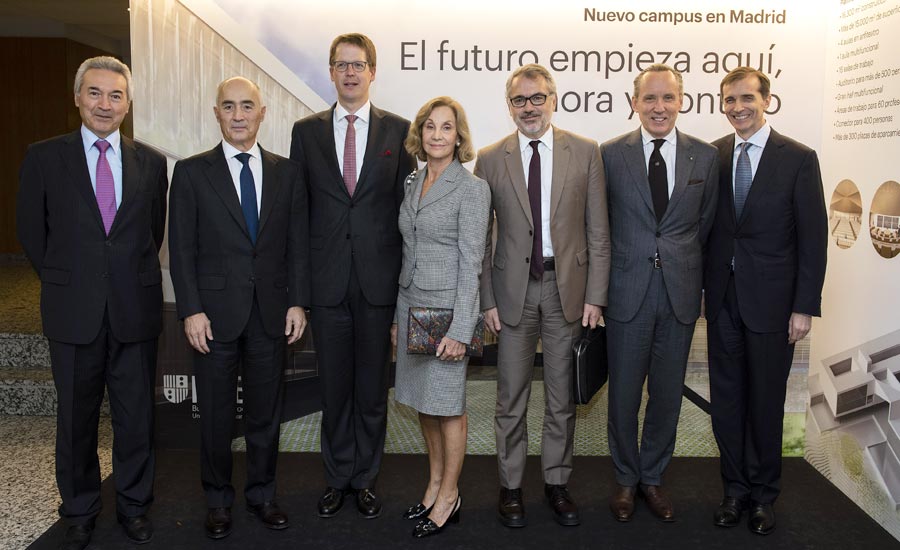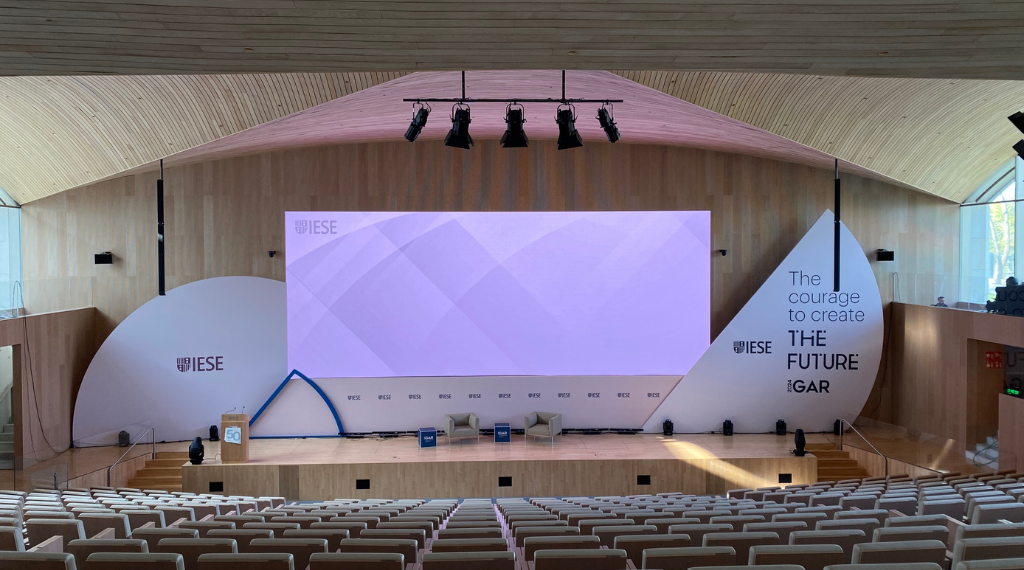Stories
Taking the Long View
Madrid campus marks 60th anniversary with debate on corporate governance and family businesses
November 20, 2018

How do family businesses survive and adapt? Management transparency, prudence in decision-making and taking a long-term view of the business.
Those were some of the conclusions of five top business leaders who gathered at the Madrid campus for the seminar “Long-Term Company Development: the Central Role of Corporate Governance,” chaired by professor Jordi Canals. The seminar formed part of IESE’s 60th anniversary celebrations.
For the chairman of Puig, Marc Puig, the key for every family business is long-term vision with the objective of “leaving a legacy for the next generation as we received it from the previous.”
The chairman of Gestamp, Francisco Riberas, agreed, maintaining that the family business should prioritize the long term even more, which “involves prudence and sensible leverage” in borrowing. “Managing not to let short-termism take over is the greatest challenge,” said Ermenegildo Zegna, CEO of the Italian multinational bearing his name.
Equally, preserving the founding values is fundamental. “The corporate governance of any group must adapt to the times both in the family and business fields, while maintaining its values,” Riberas said. This “legacy and value protection,” explained Puig, is the objective of the family holding that controls the perfumes and cosmetics multinational, managed by the third generation of the Puig family.
Transparency, Whether Publicly Traded or Not
Zegna belongs to the fourth generation of the Zegna family controlling the business. “Transparency and a sense of responsibility are values that must always be maintained in a family business, despite the passage of time,” he said. Although his company has not been listed on the stock exchange, Zegna recognizes that he directs it as if it were listed, and to this end they impose strict transparency rules and include independent directors. For her part, the chairwoman of Prosegur, Helena Revoredo, added that the family business that lists on the markets, as is her case, “benefits greatly from the transparency demanded.”
As far as the suitability of going public is concerned, Puig explained that “family businesses must weigh up very carefully whether to list on the stock market and be very clear about it, because the demands are very high and the decision is largely irreversible.” Revoredo pointed out that in her company, which has been listed since 1987, this fact imposes discipline and that her family has always managed to maintain 51% control of the business, at the cost of “having to do a bit of juggling to maintain this majority.”
Attract and Retain Talent… and Directors
“The most important thing for a family business is that, above all else, it continues with its activity. And so that it grows, attracting talent is essential,” said Rafael del Pino, chairman of Ferrovial. In his opinion, one of the great advantages of listed companies is the access it allows to certain sources of finance, and that it favors the search for and contracting of talent. Riberas believes the same, and added that “the professionalization of the board is key, especially when listing on the stock market.” “Thinking that the best manager is always going to be one of the family is not statistically supported,” added Rafael del Pino.
He also admitted that finding a good director is very difficult, “and when you do find one, you must hold onto them at all costs, as if they were an endangered species.” For Del Pino, independence and difference are two essential virtues that every good independent director must have. “Also transparency, clarity and sincerity,” he added.
On this point, Revoredo agreed that external directors “must have a certain affinity with the objectives and the values of the company” and highlighted the importance of incorporating independent professionals in the heart of the companies since they bring “objectivity, new vision, different experiences, and this is something that contributes a lot to the company.”
A celebration full of new projects
“The world has changed a lot since 1958, when this school was founded. A lot of business people, some of them trained at IESE, have contributed to this change,” said Dean Franz Heukamp, in front of the auditorium of professionals, alumni and numerous guests. They all had the chance to see up close the progress on the expansion works of the Madrid campus, the inauguration of which is planned for September 2020.
This is not the only project for the future of IESE on the Madrid campus, since in September 2019 the new Master in Management (MiM) will start, an 11-month program aimed at recent university graduates preparing to enter the workforce.


